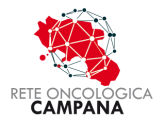The effective management of cancer patients necessitates a robust organizational framework to facilitate timely diagnosis and treatment. This paper examines the development and impact of the Campania Oncology Network (Rete Oncologica Campana, ROC) in tackling critical challenges in cancer care throughout the Campania region in southern Italy. Established to address high cancer mortality rates and systemic inefficiencies, the ROC integrates various health care facilities, including specialized multidisciplinary oncology groups, local health authorities, and general practitioners, promoting a collaborative approach to patient management. Since its initiation in 2016, further enhanced by the launch of a digital platform in 2018, the ROC has streamlined patient pathways by reducing care fragmentation and diagnostic delays, ensuring the integration of home care services and access to innovative diagnostic testing. This paper presents findings from the ROC digital platform (a real world database that compiles data from w95 000 patients) demonstrating the ROC’s pivotal role in generating evidence-based clinical guidelines and enhancing health care quality. By facilitating the systematic implementation of multidisciplinary care and longitudinal monitoring of patient outcomes, the ROC has significantly expanded its capacity to manage new cancer cases, showcasing the effectiveness of a well-organized oncology network in improving patient care outcomes. These insights emphasize the critical need for strategic health care models to address regional disparities in cancer care management effectively. Key words: oncology network, cancer care, multidisciplinary oncology groups, digital health platform, real world data
